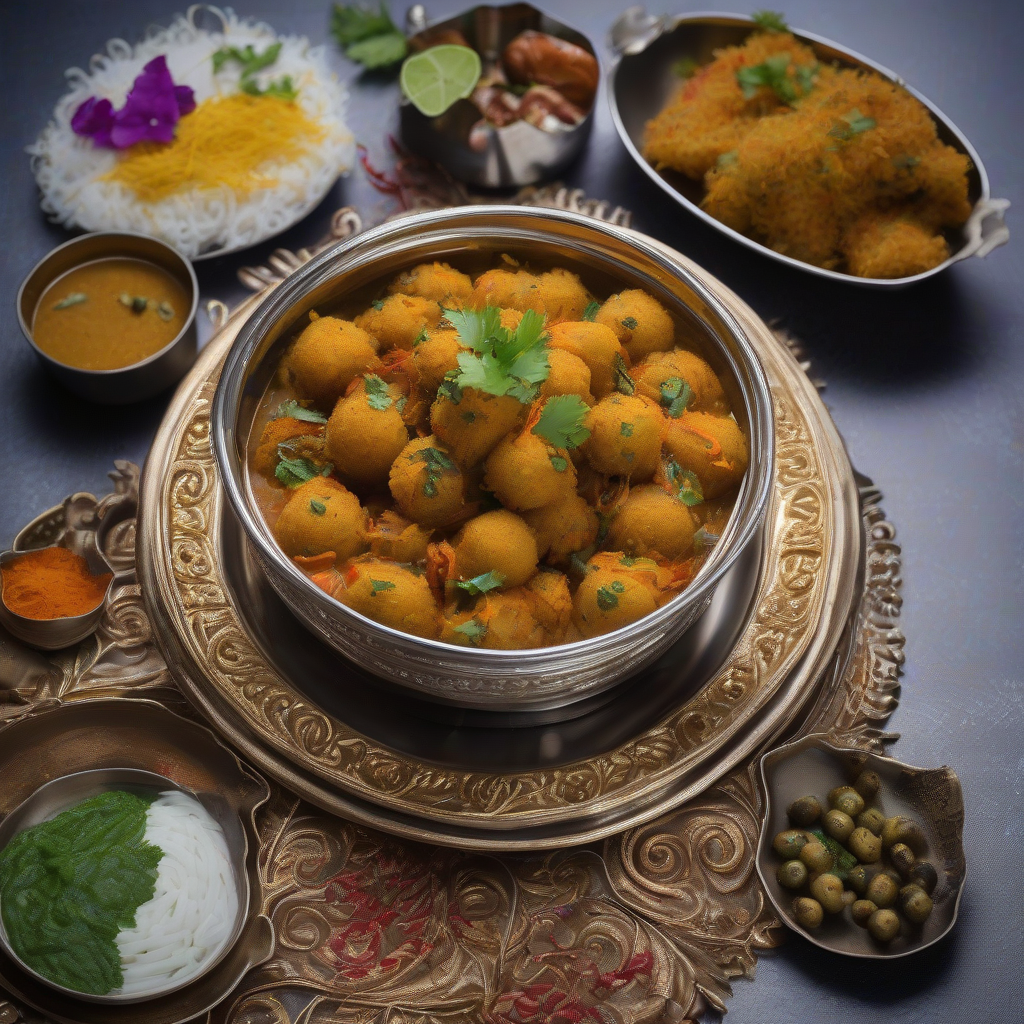Eronba: A Taste of Manipur in Your Kitchen, Yaar!
Namaste and Khurumjagei! (That’s a warm greeting in Manipuri, my friends!) Chef Curry Do’pyaza here, ready to whisk you away on another delicious adventure. Today, we’re diving deep into the heart of Manipuri cuisine with a dish that’s both simple and bursting with flavour: Eronba!
Think of Eronba as a vibrant, tangy, and utterly addictive chutney-like dish. It’s the kind of thing that makes you lick your plate clean and crave more. This is a dish that is close to my heart as it reminds me of my time in the North East of India.
When Do We Eat This, Boss?
Eronba is a staple in Manipuri households, enjoyed throughout the year. But it truly shines during festivals like Ningol Chakouba (a beautiful festival where married daughters are invited back home for a grand feast) and Yaoshang (the Manipuri version of Holi, celebrated with colours and much merriment!). It’s also a common side dish during everyday meals, adding a zesty kick to rice and other curries.
A Little History Lesson, My Doston
Eronba’s history is as humble as its ingredients. It’s a dish born from resourcefulness, making the most of seasonal vegetables and fermented fish. The fermented fish, Ngari, is the key ingredient that gives Eronba its unique and pungent flavour. It’s been a part of the Manipuri diet for centuries, a testament to their sustainable and flavourful culinary traditions.
Let’s Get Cooking!
Preparation Time: 15 minutes
Cooking Time: 20 minutes
Ingredients, Mere Yaaron (My Friends):
- 2 medium sized Aloo (Potatoes)
- 2 medium sized Baingan (Eggplants)
- 2-3 number of Hari Mirch (Green Chillies), adjust to your spice level
- 1 medium sized Pyaaz (Onion), roughly chopped
- 2-3 pieces of Ngari (Fermented Fish), about 25-30 grams.
- 1 bunch Hara Dhaniya (Coriander Leaves), chopped
- Salt to taste
Instructions, Step-by-Step:
- Roast the Veggies: First, we need to roast our baingan (eggplant) and aloo (potatoes). You can do this directly on a gas flame for a smoky flavour, or in the oven at 200°C (400°F) until the skin is charred and the inside is soft. If using a gas flame, turn the vegetables occasionally to ensure even cooking.
- Prep the Ngari: While the vegetables are roasting, gently heat the ngari (fermented fish) in a pan until it releases its aroma. Be careful not to burn it!
- Peel and Mash: Once the baingan (eggplant) and aloo (potatoes) are cool enough to handle, peel off the charred skin. Mash them roughly with a fork or your hands. Don’t worry about making it perfectly smooth; a little texture is good!
- Combine and Grind: In a mortar and pestle (or a grinder if you prefer), combine the mashed vegetables, heated ngari (fermented fish), chopped pyaaz (onion), and hari mirch (green chillies). Grind everything together until you have a coarse paste.
- Season and Garnish: Add salt to taste. Mix in the chopped hara dhaniya (coriander leaves).
- Serve and Enjoy: Your Eronba is ready! Serve it with hot rice and enjoy the explosion of flavours.
Tips for the Best Eronba:
- The Ngari is Key: The quality of your ngari (fermented fish) will greatly impact the flavour of your Eronba. Try to source it from a reputable store or online vendor.
- Spice it Up (or Down): Adjust the amount of hari mirch (green chillies) to your liking. If you’re not a fan of heat, start with just one chilli and add more as needed.
- Smoky Flavour: Roasting the baingan (eggplant) and aloo (potatoes) over an open flame gives the Eronba a wonderful smoky flavour. But if you don’t have a gas stove, roasting them in the oven works just as well.
Cooking it Your Way:
- Gas Stove: The traditional method, perfect for roasting the vegetables directly on the flame.
- Oven: Great for a hands-off approach to roasting the vegetables.
- Microwave: You can microwave the vegetables until soft, but you’ll miss out on the smoky flavour.
- Air Fryer: A quick and easy way to roast the vegetables.
- Pressure Cooker/Instant Pot: Not recommended, as the roasted flavour is crucial to the dish.
Nutritional Information (Approximate, per serving):
- Calories: 150-200
- Protein: 5-7g
- Carbohydrates: 25-30g
- Fat: 2-4g
Serving Suggestions:
- Serve Eronba as a side dish with rice and dal.
- Pair it with grilled fish or meat.
- Use it as a flavourful dip for crackers or vegetables.
- Enjoy it as a simple and satisfying snack on its own.
Now, Go Make Some Magic!
So there you have it, my friends! Eronba, a taste of Manipur that you can create in your own kitchen. It’s a simple, flavourful, and utterly addictive dish that’s sure to impress your family and friends.
Go on, give it a try! Cook up a batch of Eronba, share it with your loved ones, and let them experience the magic of Manipuri cuisine.
Happy cooking, and until next time, keep the flavours flowing!
